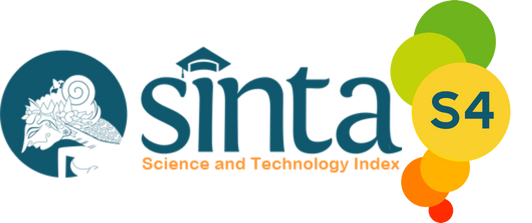Analisis Pengetahuan Ilmiah Proses Pembuatan Lentog Tanjung sebagai Objek Pembelajaran IPA dalam Upaya Pengenalan Literasi Sains dan Budaya Lokal
DOI:
https://doi.org/10.52434/jkpi.v5i2.42587Abstract
This research is based on the low relationship between science materials in schools and local cultural contexts that are relevant to students’ daily lives, thus having an impact on low science literacy. This study aims to analyze scientific knowledge of the process of making Lentog Tanjung as an object of learning Natural Sciences (IPA) in order to introduce science literacy and local culture to students. The method used is descriptive qualitative research with data collection techniques in the form of observation, interviews, and documentation of business actors and the production process of Lentog Tanjung in the Kudus area, Central Java. Data analysis was carried out using the Miles and Huberman model through the stages of data reduction, data presentation, and conclusion drawn. The data obtained is strengthened through triangulation of methods and sources to ensure the validity of the information obtained. The results of the study show that the process of making Lentog Tanjung contains various science concepts, including changes in substances, additives, and aspects of nutritional content. These findings show that local activities such as cooking Lentog Tanjung can be an effective medium in introducing science literacy and local culture, especially in the aspects of scientific knowledge, science processes, and the context of the application of cultural sciences. The conclusion of this study is that the integration of local culture into science learning has the potential to support students’ scientific involvement and understanding, as well as being one of the strategies in introducing science literacy and local culture of students in schools.
Keywords: local culture, lentog tanjung, science literacy, science learning
Downloads
Published
Issue
Section
License

Ciptaan disebarluaskan di bawah Lisensi Creative Commons Atribusi-BerbagiSerupa 4.0 Internasional. Penulis yang menerbitkan dengan jurnal ini setuju dengan ketentuan berikut:
- Penulis mempertahankan hak cipta dan memberikan hak penerbitan pertama kepada jurnal dengan karya yang secara bersamaan dilisensikan di bawah Lisensi Attribution-ShareAlike 4.0 International (CC BY-SA 4.0) yang memungkinkan orang lain untuk membagikan karya tersebut dengan pengakuan kepenulisan karya dan publikasi awal dalam jurnal ini.
- Penulis dapat membuat pengaturan kontrak tambahan yang terpisah untuk distribusi non-eksklusif dari versi jurnal yang diterbitkan dari karya tersebut (misalnya, mengunggahnya ke repositori institusional atau menerbitkannya dalam buku), dengan pengakuan publikasi awal dalam jurnal ini.
- Penulis diizinkan dan didorong untuk memposting karya mereka secara online (misalnya, di repositori institusional atau di situs web mereka) sebelum dan selama proses pengiriman, karena hal ini dapat mengarah pada pertukaran yang produktif, serta sitasi yang lebih awal dan lebih besar dari karya yang diterbitkan (Lihat Efek Akses Terbuka).













